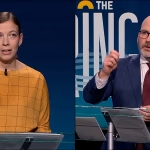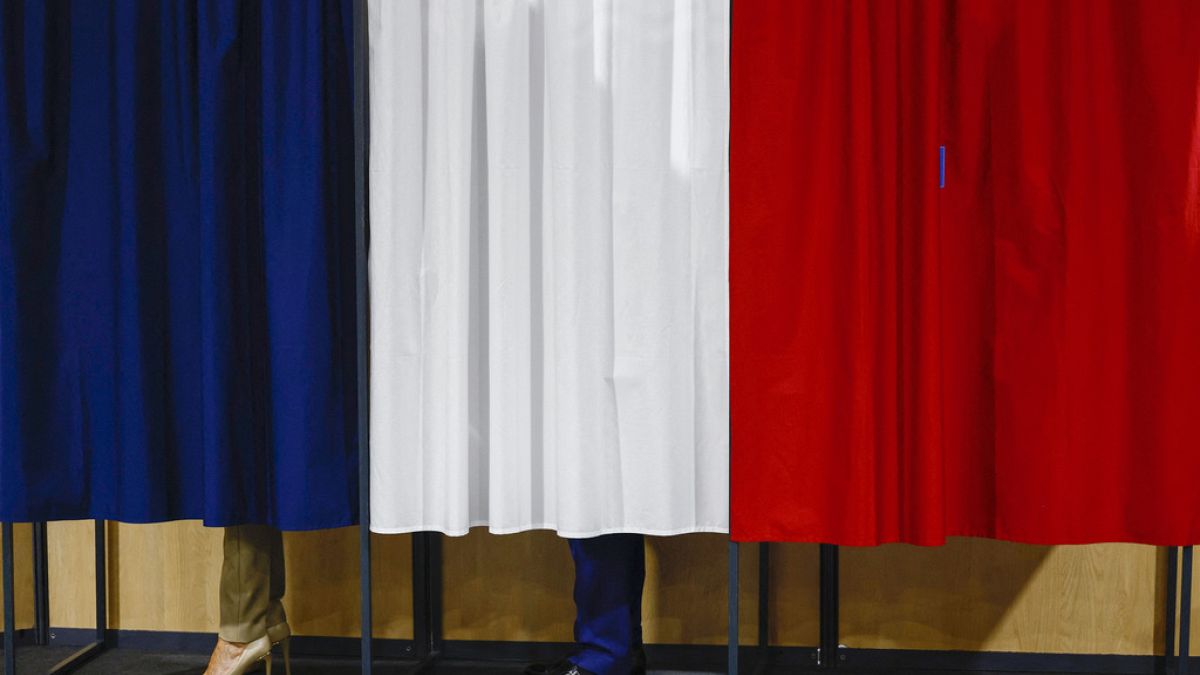The far-right party National Rally (RN) led by Jordan Bardella and Marine Le Pen is facing an uphill battle in reaching an absolute majority in the French lower chamber. The latest polls indicate that the RN and its allies are likely to secure a relative majority of seats but may fall short of the 289 seats needed for an absolute majority. On the other hand, the left-wing coalition, the New Popular Front (NFP), is projected to have between 170 and 200 seats, while President Emmanuel Macron’s centrist liberal democrats are expected to secure between 95 and 125 seats. The centre-right Republicans (LR) could potentially win between 25 and 45 parliamentary seats.
Despite the challenges in reaching an absolute majority, Bardella remains hopeful and ambitious about broadening his support base. He has welcomed the support of right-wing and centrist voters as he aims to strengthen his position in the upcoming elections. However, the traditional practice of parties suggesting their voters support alternate political forces in constituencies where they are not likely to win may not have a strong influence on the electorate. Incumbent prime minister Gabriel Attal emphasized the risks of a far-right majority and urged voters not to support the far-right party, but acknowledged that ultimately, citizens will vote according to their own conscience.
The Republican Front, a political barrier against the far-right, has implemented an electoral strategy of withdrawing weaker candidates in favor of stronger anti-far right candidates in individual constituencies. This approach aims to prevent the far-right party from gaining significant influence in the legislative elections. As of now, 215 candidates have already withdrawn from the race in support of this strategy. The outcome of Sunday’s elections remains uncertain, with various political parties and coalitions vying for support from the electorate. Bardella and the RN will need to secure a substantial number of seats to achieve their political goals.
In the final days leading up to the second round of legislative elections, Bardella is hopeful for a last-minute boost to his campaign. He has expressed his ambitions to broaden his majority and appeal to a wider range of voters, particularly those from the right-wing and centrist political spectrum. However, despite his efforts, the likelihood of the far-right party winning an absolute majority remains slim based on current polling data. The outcomes of the elections will ultimately be determined by the choices made by individual voters, as they exercise their democratic right to elect their representatives.
The results of the legislative elections will have significant implications for the political landscape in France, determining the balance of power in the lower chamber and influencing the direction of policy-making in the country. The different political parties and coalitions are engaged in intense campaigning and outreach efforts to secure the support of the electorate. As the election day approaches, the focus will be on voter turnout and the final decisions made by individual voters in each constituency. The French political scene remains dynamic and unpredictable as the various parties and candidates make their final appeals to the voters in the crucial second round of legislative elections.









